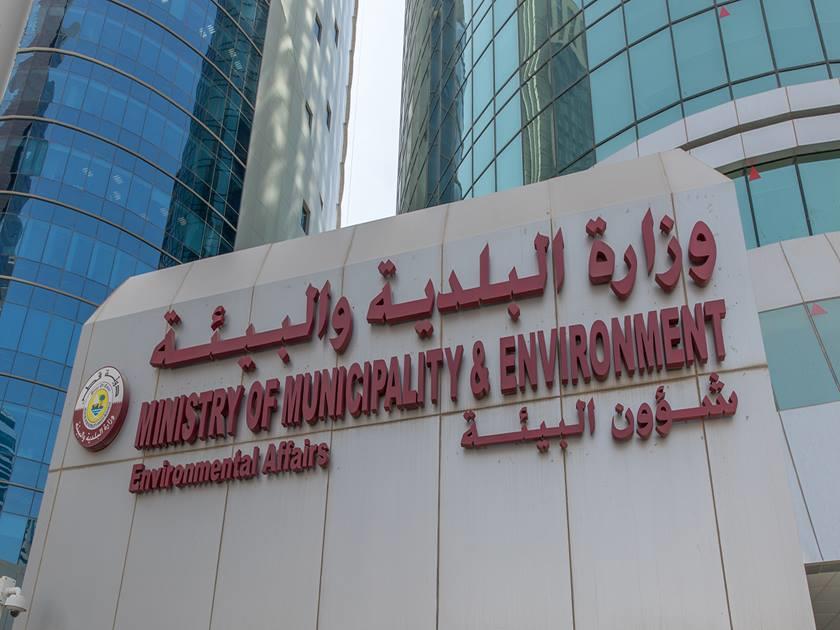
Qatar Wins Presidency Of Islamic Organization For Food Security
TUNISIA: The Islamic Organization for Food Security announced that the State of Qatar had won the presidency of the Organization's Executive Council for a period of three years, during the 5th meeting of the General Assembly, which was held today in Tunis.
On this occasion, Minister of Municipality HE Abdullah bin Abdulaziz bin Turki Al Subaie stressed that Qatar's winning of the presidency of the Executive Council of the Islamic Organization for Food Security is a fruit of Qatar's policies and positions towards the Islamic world, and message of confidence from the member states of the Organization in the effective role of Qatar with regards to concerns of the Islamic nation under the wise leadership of HH the Amir Sheikh Tamim bin Hamad Al Thani.
HE the Minister said that Qatar's presidency of the Executive Council of the Organization over a period of three years will enable it to contribute to strengthening the food security system in Islamic countries, especially in light of the current situation and recurring crises that threaten food security in the world and Islamic countries in particular, which requires more concerted efforts and capacity building to enhance the food security system.
For his part, the Director of the Food Security Department at the Ministry of Municipality Dr. Masoud Jarallah Al-Marri said that Qatar, represented by the Ministry of Municipality, has achieved in recent years a great leap in the levels of self-sufficiency in agricultural products, as a result of the support provided by the Ministry to producers in the agricultural sector with all its components (vegetables, animals, fish). The percentage of self-sufficiency in local vegetables increased from about 20 percent in 2017 to about 46 percent in 2022, with an increase of about 130 percent.
He added that the self-sufficiency rate of dates increased from 70 percent in 2017 to about 78 percent in 2021, with an increase of about 11 percent, and green fodder from 32 percent in 2017 to 39 percent in 2022, with an increase of about 22 percent.
Dr. Masoud Jarallah Al-Marri went on to say that the levels of self-sufficiency in animal products have improved, as the percentage of self-sufficiency in dairy products increased from only 28 percent in 2017 to 100 percent in 2022, which means that the self-sufficiency rate has quadrupled during the five years. Finally, self-sufficiency in fresh broiler chickens increased from 50 percent in 2017 to 100 percent in 2022, and table eggs from 14 percent in 2017 to 36 percent in 2022, with an increase of more than 157 percent.
The self-sufficiency rate of red meat in the country has also increased from 13 percent in 2017, to about 18 percent currently, an increase of about 38 percent. The food security strategy aims to stabilize the self-sufficiency rate of dairy and fresh broiler chickens at 100 percent, and raise the self-sufficiency rate for table eggs to 70 percent and red meat to 30 percent by 2023.
The Director of the Food Security Department indicated that in the field of fish production, one of the important achievements that have been accomplished during the last period is the operation and management of the Aquaculture and Fish Farming Research Center, which has made many achievements, including the production of millions of fish of all kinds.
The State of Qatar attaches special importance to food security as one of the important and vital issues, in order to work on providing food through local production and making a sufficient strategic stock of storable food commodities, while giving importance to the need to diversify import sources of food commodities to avoid the repercussions of the closure of some supply routes during crises and emergency situations.
The National Food Security Strategy (2018-2023) is based on four main pillars: local self-sufficiency, strategic reserves, international trade, and local markets with the aim to achieve three basic elements: availability, cost, quality, and safety.
The Islamic Organization for Food Security is a specialized institution affiliated with the Organization of Islamic Cooperation (OIC), established in 2013, and aims to provide expertise and technical knowledge to member states in various aspects of sustainable agriculture, rural development, food security, and biotechnology, and to monitor the food security situation in member states to enable them to identify emergencies, provide social safety nets and humanitarian aid through food security reserves, coordination, formulation and implementation of common agricultural policies such as exchange and transfer of appropriate technology and public food management systems, address problems such as desertification, deforestation, erosion and salinity, mobilization and management of financial and agricultural resources to enhance food security.
The Organization's executive council consists of 7 members, including the president. The current council includes Qatar, (Chair) and the United Arab Emirates, Kazakhstan, Pakistan, Tajikistan, Cameroon, and the Gambia as members.

Legal Disclaimer:
MENAFN provides the information “as is” without warranty of any kind. We do not accept any responsibility or liability for the accuracy, content, images, videos, licenses, completeness, legality, or reliability of the information contained in this article. If you have any complaints or copyright issues related to this article, kindly contact the provider above.






















Comments
No comment